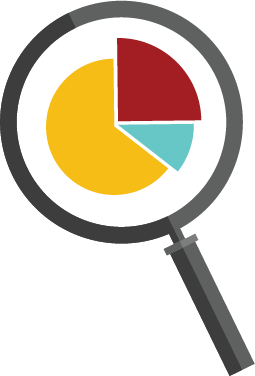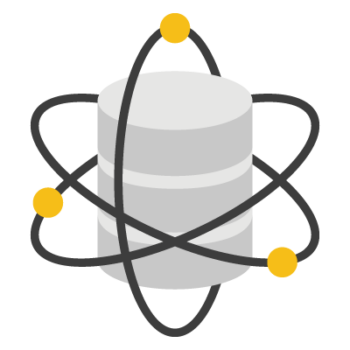Core Data Services Details

The Data Services team supports WashU users across campuses, schools, and disciplines. This page describes our core data services in detail.
What We Offer
We offer help desk support, research guides, resources, workshops, and 1:1 consultations for all core services listed.
Visit our Data Services Spaces and Tools page for more details about the related tools mentioned below, or see our Tiers of Service if you are interested in special or recharge projects.
Recommend Data Sets
Please fill out the Recommend a Data Set Purchase form to suggest Data Services make an addition to their offerings.
Supporting Research
The Data Services team at the WashU Libraries supports research in multiple disciplinary fields. Data Services offers consultations, talks, demonstrations, and hands-on workshops in relevant tools. Want to know more about what Data Services offers for your discipline? Select one of the following links (PDFs) to learn more.
Request Assistance
The Data Services team aims to support WashU users. The team offers a regular schedule of workshops and help desk availability. Here, users may also request a personal or customized workshop, schedule an appointment with a Data Services team member, or otherwise get help sharing data.
Data is shared and archived for a variety of reasons. The value curation adds to the WashU community is incalculable, as are the benefits of curation to the longevity, accessibility, and availability of shared information.
Data Services is here to support the WashU community with data needs. Please contact Data Services to get help sharing data (email).
To request a workshop, please complete and submit a Workshop Request Form. Some information to have at hand when filling out the Workshop Request Form would be:
- Name/Department
- Requested topic
- Number of students (minimum 4 attendees)
- Requested date/time
- Specific content to be covered
Data Services at the Libraries offers several opportunities for groups, teams, departments, or labs to receive workshops in a broad array of areas. If you do not see the topic you need in the core services options below, please contact us to discuss developing a customized workshop.
Data Management, Sharing & Curation
- Data Management: Planning and Practice
- Data Management: Sharing and FAIRness
- Web Scraping with Python
- Open Refine: Cleaning Messy data
- Data Management with the OSF
Data Exploration & Visualization
- R vs. Python
- R for New Users
- Data Viz in Tableau
Data Sourcing
- Finding, Evaluating & Understanding Data
Mapping
- Introduction to GIS (ArcMap)
- Story Mapping
- Introduction to QGIS: Vector data
- Introduction to QGIS: Raster data
- Spatial Data with Python
- Mapping with R
- Mapping with Tableau
- Extending the Map Series with ArcPy
- Mapping in AGOL
We ask those interested in an appointment with our Data Services Team to complete a short questionnaire. Your responses will allow the team to better assist you and understand your and the campus community’s needs.
Please complete the following questionnaire to Request an Appointment with Data Services.

Data Sourcing
Finding, evaluating, and understanding the application of data and documentation.
Related Research Guide: About Data Sourcing
We can help you:
- Suggest quality sources
- Evaluate data documentation and quality
- Understand data and documentation
- Make evidence-based arguments
Research Data Management, Sharing & Curation
Making data generated throughout the research lifecycle research projects FAIRly available to a wide audience.
Related Research Guides: Managing Your Data; Digital Research Data Sharing at WashU
We can help you:
- Review your data for findability, accessibility, interoperability, and reusability (FAIRness)
- Write a Data Management Plan (DMP)
- Implement best practices for file organization and documentation
- Identify appropriate storage platforms
- Share your data in a research repository
- Submit to the WashU Research Data Repository (WURD)


Data Exploration & Visualization
Using tools to prepare data, understand patterns and trends, and effectively communicate data stories.
Related Research Guides: Interrogate Your Data: Data Analysis; Data Storytelling – 2D Data Visualization
We can help you:
- Wrangle data
- Select analysis tools
- Develop a processing workflow
- Develop a data model
- Choose an appropriate visualization type
- Identify tools for visualization
Digital Humanities
Using digital tools and computational methods to support research and teaching in the humanities.
Related Research Guide: Digital Humanities
We can help you:
- Learn and use text mining tools and methods
- Prepare text for analysis using OCR or handwritten text recognition tools
- Create digital collections and exhibits of cultural heritage materials
- Prepare unstructured research materials for use in digital tools, data analysis, or network analysis
- Choose digital tools to enhance humanist inquiry and share research


3D/AR/VR
Creating and capturing information in three dimensions and using augmented and virtual reality to explore data in 3D.
We can help you:
- Capture 3D data through scanning and photogrammetry
- Develop 3D environments
- Visualize 3D environments in headsets
- Consult on 3D best practices for preservation
Geographic Information Systems (GIS)
Leveraging geographic information systems and location data to explore interdisciplinary problems.
Related Research Guide: Geographic Information Systems (GIS)
We can help you:
- Develop geospatial project workflows
- Find geospatial data sources
- Learn to use GIS tools
- Perform geospatial analyses and interpret the results
- Develop good practices for geospatial data management

Contact Us
Questions or concerns over sharing your data? Reach out to the Data Services Team at any time.
Have you attended an appointment or a Data Services workshop? Please complete our Data Services Feedback Form.
